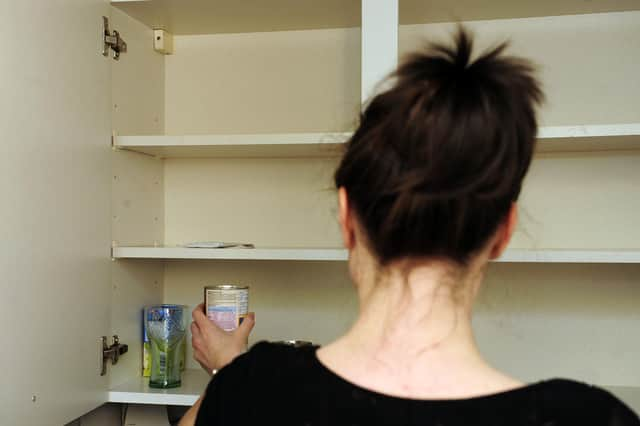Who gets to eat and when should give us food for thought – Pete Ritchie


What if the shops had actually run out of food, not just delivery slots? They didn’t. The massive stocking up, followed by the closure of the entire catering and hospitality sector, created a huge sudden shock to the supply chain. The chain flexed, and it didn’t break.
Of course, for various reasons, many people still don’t have access to food. Government in Scotland, both local and national, is trying to tackle this. But there is no national or global shortage of food.
Advertisement
Hide AdAdvertisement
Hide AdThis resilience in the supply chain is partly about technology, but mostly about trust. Countries didn’t close their borders to trade in food, because they were confident that other countries would keep their borders open. This co-operation has extended to sharing data as well as medical supplies and healthcare workers.


So, what can we learn so far from the Covid-19 crisis about food, climate and nature?
First, that our food system can change rapidly. Overnight, we have stopped eating and drinking outside the home. That’s changing what as well as how we eat.
Food is a key driver of three global challenges – obesity and malnutrition; the collapse of biodiversity; and global heating. If we want to deliver fully on our aspirations for climate, for nature or for public health, we have to change the food system. What we eat is shaped by our food environment, and this crisis has brought home to us how much that environment is shaped by a handful of businesses. The power they hold should be used responsibly.
Beyond the crisis, supermarkets should be making it easier for us to buy and eat what we need to stay well with a healthy, balanced diet. They could and should be reducing the environmental impact of the food they sell, both in terms of climate and nature; for example, by supporting agroecology and by reducing supply chain waste and enabling more plant-based eating.
There have been baby steps of change in this direction, but we now know that new can become normal in a couple of days. That’s why it’s especially disappointing that the Scottish Government’s Good Food Nation Bill is another casualty of the virus, when it has the potential to bring about change we want to see in a sustainable and socially just society.
Second, this crisis has shown that countries can take rapid and drastic action – whatever it takes – and get support from their citizens. And they can work together to confront a challenge. There could have been some more visible global leadership, but in this real emergency, after some early wobbles, countries are co-operating in the common interest rather than manoeuvring for advantage. The level of future international co-operation will determine whether this crisis generates a green recovery or a grey depression – neither is inevitable.
Third, that people can get left behind in a transition. For some of us in the UK, so far this has been an inconvenience but not a disaster. Many people have kept their jobs and are being paid as normal, even if they have had to adjust their lifestyle and the way they work. But millions have lost their livelihoods overnight because of events for which they were not responsible. The parallels with climate change are all too obvious.
Advertisement
Hide AdAdvertisement
Hide AdWhile most people in the UK are food secure, millions are experiencing food insecurity. There are two groups affected. First, those most vulnerable to the impact of the virus, who have been told to stay at home and whose normal ways of getting food have been disrupted. Government has been slow but is now following up its message to stay home with a coordinated system to make sure people are getting the food they need. Similarly, cash or food is now being put in place for children eligible for free school meals.
The second group are the people whose income is wholly inadequate to meet their living costs: those who have lost their income and have had to turn to Universal Credit and personal loans within a week or two; and the people who were already food insecure before this crisis hit – including many refugees and asylum-seekers who have no recourse to public funds. Food banks and new community level charity efforts are springing up across the UK in light of the lack of coordinated response to this need.
The Scottish Government’s investment of £350 million to strengthen the Scottish Welfare Fund and support the efforts of local authorities and communities is very welcome.
Communities have a vital part to play in enhancing our wellbeing, but it must not be left to a scramble of well-meaning charities to pick up the pieces. Not at this time, and not afterwards.
When the grip of this crisis has passed, we should remember seven words – food matters, whatever it takes, just transition.
Pete Ritchie is the director of Nourish Scotland and the convener of Scottish Environment LINK’s Food and Farming Group.